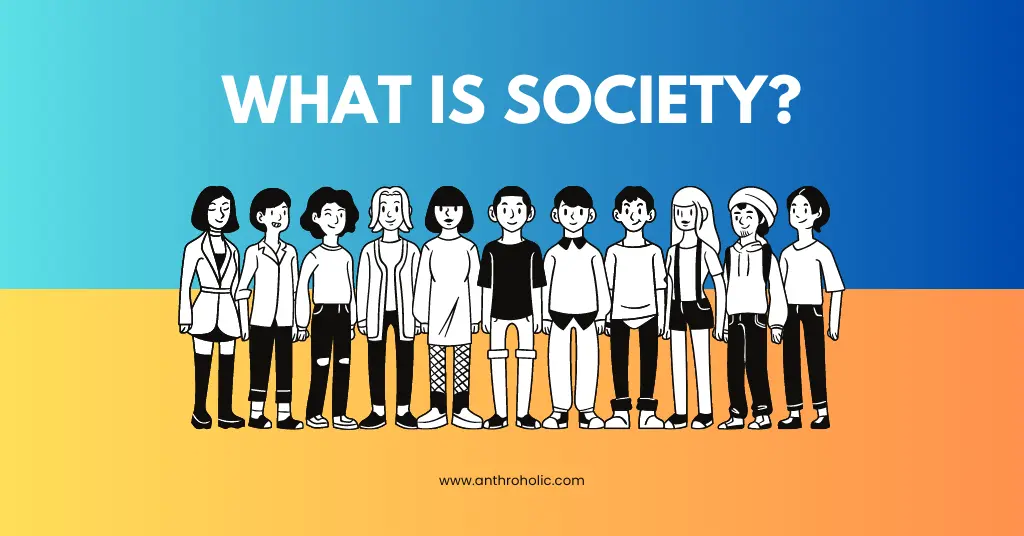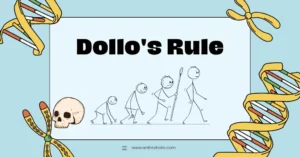AI Answer Evaluation Platform Live Now. Try Free Answer Evaluation Now
Society
Society is an intricate web of human relationships that encompasses shared values, beliefs, and behaviors. It is the basic unit of social organization and represents a collective identity that brings individuals together. Society is characterized by shared norms, institutions, and cultural practices that shape human interactions and create a sense of belonging and cohesion among its members.

Definition of Society
Society can be defined as a group of individuals who share common customs, norms, values, and institutions, and who interact with one another within a specific geographical or cultural boundary. It is a social structure that provides a framework for organizing and regulating human behavior, shaping social roles, and establishing patterns of social order and cooperation. Society encompasses various aspects, including social, economic, political, and cultural dimensions, which are interwoven and interdependent.
The concept of society has been explored and defined by numerous scholars and thinkers throughout history. Sociologists such as Émile Durkheim, Max Weber, and Talcott Parsons have contributed significantly to our understanding of society as a social entity. Their theories and research have shed light on the intricacies of social structures, the formation of social institutions, and the dynamics of social change.
Society as a subject of study
The study of society falls within the purview of sociology, a discipline dedicated to examining social relationships, institutions, and phenomena. Sociologists employ various research methods, including surveys, interviews, observations, and statistical analysis, to explore the complexities and patterns within society. Through their investigations, sociologists strive to unravel the underlying mechanisms that shape human behavior, social interactions, and the structures that govern society.
Furthermore, other academic fields such as anthropology, political science, economics, and psychology also contribute to our understanding of society by examining different facets of human social life from diverse perspectives. These interdisciplinary approaches provide a comprehensive view of society and help elucidate the interplay between social, cultural, economic, and political factors.
Origin and Evolution of Society
The origin of human societies can be traced back to the earliest forms of social organization among our ancestors. As humans developed cognitive abilities and began to cooperate for survival, they formed groups that eventually evolved into complex societies. The advent of agriculture and the domestication of animals paved the way for sedentary lifestyles and the establishment of more stable communities.
Over time, societies have undergone significant transformations, adapting to changing environments and technological advancements. The evolution of societies is marked by significant milestones such as the emergence of the first cities, the development of writing systems, and the establishment of political structures. Today, societies continue to evolve, driven by globalization, technological innovation, and social change.
Structure and Functions of Society
Societies are structured around various social institutions, such as family, education, religion, and government. These institutions serve to regulate human behavior, maintain social order, and promote the well-being of their members. They also function to transmit cultural knowledge and values from one generation to the next, ensuring the continuity of social identity.
Societies also fulfill essential functions for their members. They provide a framework for social interaction and cooperation, enabling individuals to satisfy their basic needs, achieve personal goals, and realize their potential. Furthermore, societies foster a sense of belonging and purpose, contributing to the psychological well-being of their members.
Types of Societies
Societies can be classified into various types based on their economic, political, and cultural characteristics. Some common types of societies include:
- Hunter-gatherer societies: These societies rely primarily on hunting, fishing, and gathering for sustenance. They are characterized by small, mobile groups with minimal social hierarchy and division of labor.
- Agricultural societies: These societies practice farming and animal husbandry, which enables them to support larger populations and develop more complex social structures.
- Industrial societies: Industrial societies are marked by the widespread use of machinery and technology, leading to increased productivity, urbanization, and a complex division of labor.
- Post-industrial societies: Post-industrial societies are characterized by a shift from manufacturing to service industries, the growing importance of information technology, and the rise of the knowledge economy.
Social Change and the Future of Society
Societies constantly undergo changes driven by factors such as technological advancements, cultural shifts, and global events. As societies adapt to these changes, they may experience new challenges and opportunities, reshaping their social structures and cultural practices.
The future of society is uncertain and subject to various influences, such as population growth, climate change, and political developments. However, the study of societies helps us understand the underlying patterns and processes that shape human interactions, providing insights into how societies may evolve in response to emerging challenges.
Conclusion
Society is a complex and dynamic entity that encompasses shared values, beliefs, and behaviors. It serves as a vital framework for human interaction, providing the foundation for social cohesion and cultural continuity. By understanding the origin, structure, and functions of societies, we can better appreciate the intricacies of human relationships and the forces that shape our collective experiences. As societies continue to evolve, driven by a myriad of factors, we must remain adaptable and responsive to the changes and challenges that lie ahead. Ultimately, the study of society is essential for fostering empathy, cooperation, and progress in our increasingly interconnected world.
FAQs about Society
References
- Durkheim, Émile. “The Division of Labor in Society.” The Free Press, 1893.
- Tönnies, Ferdinand. “Community and Society (Gemeinschaft und Gesellschaft).” Dover Publications, 1887.
- Weber, Max. “Economy and Society.” University of California Press, 1922.
- Parsons, Talcott. “The Structure of Social Action.” The Free Press, 1937.
- Giddens, Anthony. “The Constitution of Society: Outline of the Theory of Structuration.” University of California Press, 1984.
- Appadurai, Arjun. “Modernity at Large: Cultural Dimensions of Globalization.” University of Minnesota Press, 1996.



